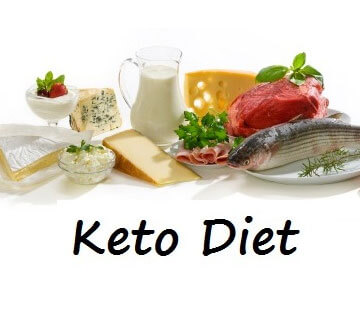
Debunked


The ‘high-fat-moderate-protein-low-carb’ diet definitely has its appeal. Here you can indulge in all the luscious goodness of butters and fried meat completely guilt-free AND still lose weight. What most don’t know is that the Ketogenic diet has been around for eons, probably since the evolution of Homo Sapien himself. The state of ‘Ketosis’ used to occur frequently in this hunter-gatherer duce to scarcity of food sources whereby the body swapped its fuel source from carbohydrates to fat. The Ketogenic diet works by limiting carb intake to a minimal forcing the body to metabolize and burn stored fat. The metabolites of fat are fatty acids and ketone bodies. Medically these diets have become a therapeutic tool for treating the obese, some Diabetics and patients diagnosed with Epilepsy.
Does the diet work? Yes if you’re looking for a quick fix and want to shed those holiday or festive pounds quickly then Ketogenic diet will certainly deliver. Will you continue to lose weight for as long as you’re on the diet. NO, especially if you continue to be sedentary. There is no shortcut to being fit and healthy folks. So whilst you may shed weight quite quickly on this diet, without exercise your metabolism will soon plateau off and you’ll stagnate. Furthermore, you’ll find that you remain slim but are horribly unfit and that, long-term, is a recipe for ill-health. If you only decide to adopt this diet for a few weeks to squeeze into that dress for the wedding and then revert to your old eating ways, I guarantee you the weight gain will be double what you lost. Such is the way of crash diets; they trick your body into believing it’s being starved and then when it gets food, it stores it all away should ever again you starve (diet) again. It’s also important to mention here that during a diet when you deprive yourself of a large food group (in this case carbohydrates), cravings creep in and that in turn results in overeating of foods you’re allowed to eat. You can’t have chocolate and so you douse and drench your salad in sour cream. More calories eaten and not as much burnt equals weight gain.
Not to demonize the it completely, there are several documented studies and cases of both professional athletes and normal people who’ve adopted the Ketogenic diet along with exercise and have found increased energy levels and fitter, healthier selves. In my mind, if exercise is the only factor that determines healthy weight loss then why bother with any fad diet at all? Let’s revert to that food pyramid taught to us in Grade 1 of how to achieve a balanced diet, mix it up with 3-5 sessions of super-sweaty workouts and keep the fitter and leaner bodies for longer. It’s foolproof!

Juggling many roles from physician to writer to pilates instructor to Marketing-PR executive, Dr. Daamini is constantly pushed and inspired to get creative on how to encompass a Retreat into her daily life.
View Profile